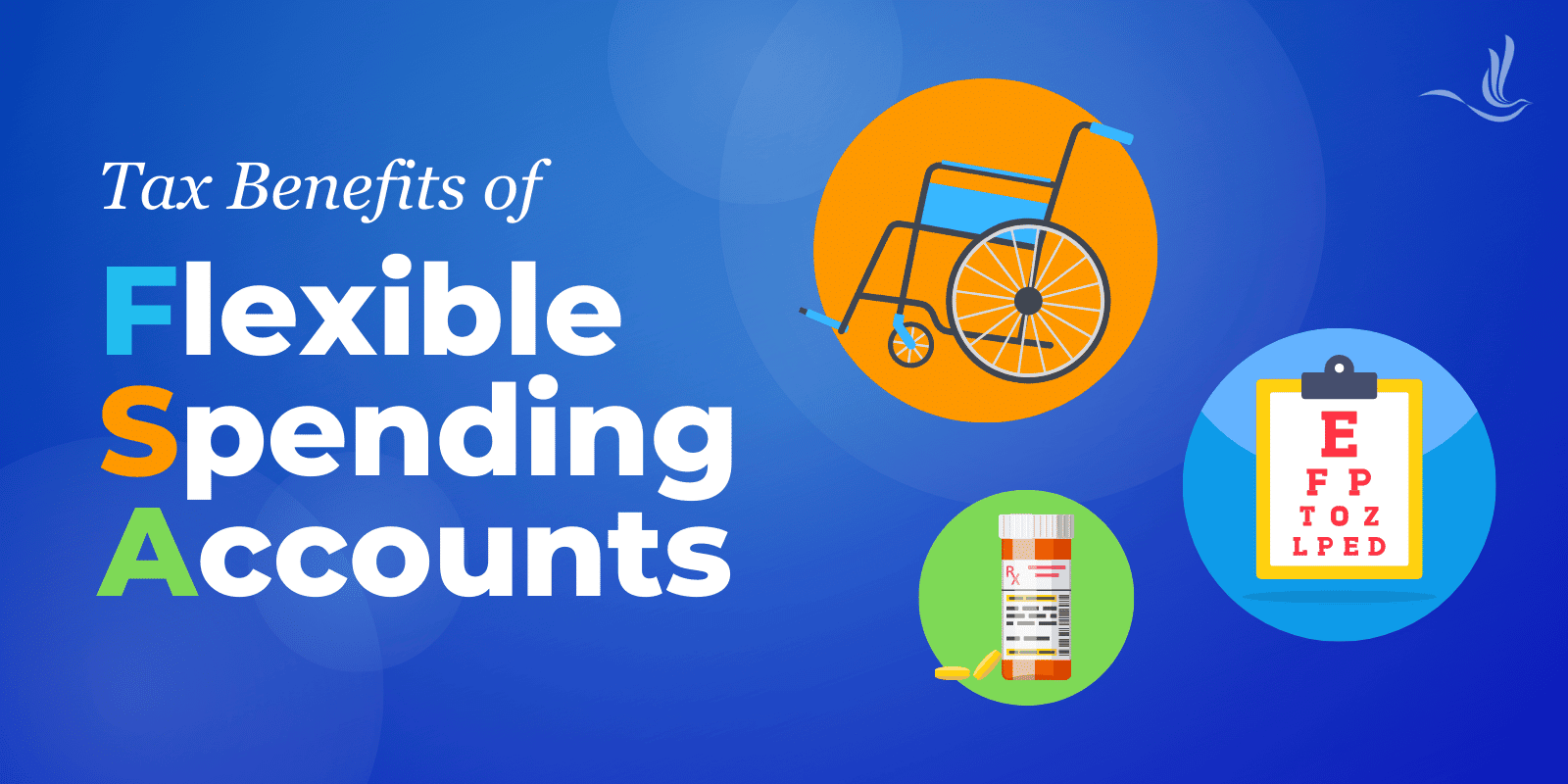Tax Benefits of Flexible Spending Accounts

Last week, we discussed the tax benefits of health savings accounts (HSAs). HSAs are tax-advantaged savings accounts specifically designed for individuals with high-deductible health plans (HDHPs). For those who do not have an HDHP, there are other options when it comes to paying for medical expenses. Enter flexible savings accounts, or FSAs. These can help cover the cost of health care expenses, all while saving you money during tax time. Here’s an overview of flexible spending accounts, including what they are, how they work, and their tax benefits that can save you money.
What is a Flexible Spending Account (FSA)?
Like a health savings account (HSA), a flexible spending account (FSA) is a tax-advantaged savings account used to pay for qualified medical expenses. In addition, FSA contributions are made with pre-tax dollars. This basically means contributions are not included in your taxable income, thus reducing your tax liability for the year. Unlike an HSA, contributions made to your FSA do not carry over to the next year. Instead, they use a “use it or lose it” policy. This means that any funds that are unspent by the end of each plan year are forfeited to your employer. However, your employer may offer some exceptions to this rule. For example, some employers might give you an additional grace period of an extra 2.5 months to use the funds or allow up to $610 to carry over into the following year.
In 2023, the IRS allows you to contribute up to $3,050 to your FSA if you’re a single person. If you are married, your spouse may also contribute the same amount through their own employer. Although they are not required to, your employer may also contribute to your personal FSA. FSAs can cover things like medical deductibles, first aid supplies, eyeglasses, contact lenses, some dental expenses, copayments, some prescriptions drugs, and coinsurance. However, note that all FSA-eligible expenses are determined by the IRS. Unlike HSAs, FSAs are typically owned by the employer or the FSA administrator. When you leave your job, you generally lose access to your FSA.
How Does an FSA Work?
During your employer’s open enrollment, you can sign up for an FSA. You’ll need to decide how much money you want to contribute to the account for the upcoming plan year. Once you’ve enrolled in the FSA, your chosen contribution amount will be deducted from your paycheck on a pre-tax basis. As you incur eligible medical expenses throughout the year, you access your FSA funds to pay for them. Your employer will typically provide you with a payment card, which is similar to a debit card. Alternatively, they may have a reimbursement procedure to access the funds. You are liable for paying back your account if the benefits card is unintentionally or knowingly used for ineligible costs. Any unspent funds in your FSA at the end of the plan year may be forfeited.
Pre-Tax Contributions
While contributions to your FSA are not tax-deductible like those of an HSA, they are deposited pre-tax. So, contributions lower your total tax liability. For example, let’s say your annual salary is $50,000 and you contribute $3,000 to your FSA. Consequently, your gross income would then be $47,000. Any taxes owed, whether they are federal, state, or local, would be based on the gross amount. Because these funds are not taxed, you cannot claim a tax deduction for your contributions. However, FSA participants have an average 30% tax savings on the total amount they contribute to their account.
FSAs vs. HSAs
HSAs and FSAs are both popular tools for managing healthcare expenses, but they have some key differences.
FSAs
- Generally available to employees with employers who offer these accounts
- FSAs have lower contribution limits, with the maximum annual contribution limit of $2,850 per individual in 2023. This limit applies to each employee and is not based on family coverage.
- No rollover, so “use it or lose it” policy, with some exceptions.
- Contributions are made with pre-tax dollars, reducing your taxable income.
- Contributions are tax-deductible.
- Withdrawals for qualified medical expenses are generally tax-free.
HSAs
- Designed for individuals with high-deductible health plans (HDHPs)
- In 2023, the maximum annual contribution for individuals with self-only HDHP coverage is $3,650, while for family coverage, it’s $7,300. Individuals aged 55 or older can make an additional $1,000 catch-up contribution.
- HSAs offer the advantage of rollover.
- Contributions are made with pre-tax dollars, reducing your taxable income.
- Contributions are tax-deductible.
- Withdrawals for qualified medical expenses are generally tax-free.
If you’re thinking about getting an HSA or FSA, you should consider your specific circumstances, healthcare needs, and employer offerings to determine which option is best suited for you.
If You Need Tax Help, Contact Us Today for a Free Consultation